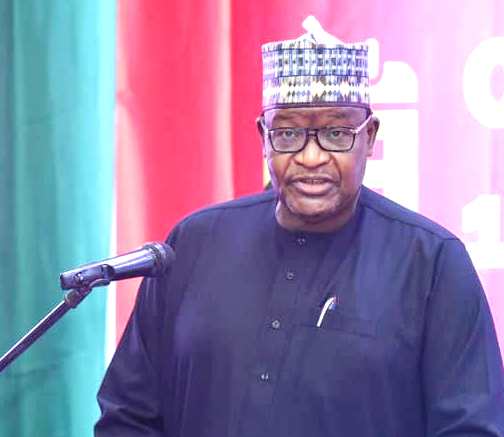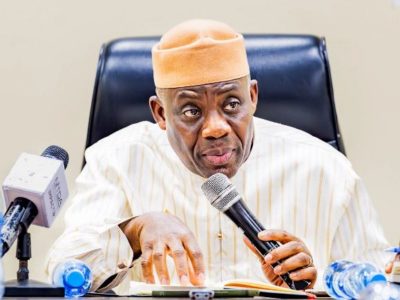Year 2020, the year of Covid-19 pandemic and global lockdown, turned out to be a mix of challenges and blessings for both operators and telecom regulators. In Nigeria, the Nigerian Communications Commission (NCC), through various activities, would fully express the embodiment of dynamic or progressive regulation.
Through various policies and programmes, the Nigerian telecoms ombudsman was both responsive and proactive in its regulatory disposition as new technologies found their way into the market; and industry actors responded to both market dynamics and the consequences of the global health crisis.
In spite of the challenges that defined 2020 and the recession that set in mid-year, there were impressive performance and growth. According to the National Bureau of Statistics (NBS), contribution of the telecoms sector to the Gross Domestic Product (GDP) increased to over 14.30% as of second Quarter of 2020.
In financial value, the 14.30% translates to N2.272 trillion in Q2, 2020. As at December 2019, telecoms contribution was 10.60%. Also, telecoms investment continued to grow in leaps and bounds in 2020 beyond $70 billion.
“Danbatta’s reappointment by the Nigerian government, lauded by industry stakeholders, is an affirmation of how much confidence stakeholders have in him.“
Similarly, active mobile voice subscribers increased from 184 million in December, 2019 to 208 million by October, 2020. This represents an additional 24 million active mobile lines accessed by Nigerians across mobile networks from December, 2019 to October, 2020. Accordingly, teledensity (the total number of telephone lines per hundred people in an area) increased from 96.76% in December, 2019 to 108.94% by October, 2020.
NCC’s regulatory activities also resulted in increased connectivity in the country. From, 126 million in December, 2019, Internet subscriptions rose impressively 152.9 million as of October, 2020. In the same vein, broadband (i.e. high-speed Internet) penetration maintained an upward swing to 45.93% in October, 2020, up from 37.80% in 2019.
Doubtless, these significant achievements by the NCC were made possible under the leadership of the Executive Vice Chairman/CEO, Prof. Umar Danbatta, who was reappointed for another five years.
Danbatta’s reappointment by the Nigerian government, lauded by industry stakeholders, is an affirmation of how much confidence stakeholders have in him as the country’s chief telecom regulator.
Consumers remain at the heart of the NCC
Part of Danbatta’s top agenda when he was first appointed in 2015 was to make the consumer the centre of NCC’s regulatory push. In 2020, the regulator continued in that stride. The NCC was able to successfully resolve over 98% of the total consumer complaints received from telecoms consumers via the NCC Toll-Free Number 622, NCC Consumer Portal, social media platforms and written complaints. Subscriptions by telecoms consumers to the NCC’s Don-Not-Disturb (DND) 2442 service reached over 30 million in 2020 compared with 22 million in 2019.
Also, Mobile Number Portability (MNP) service continued to offer wider option of service for telecoms consumers in 2020. In the year under review, 158,128 telecom consumers ported their lines between January-October, 2020, as against over 120,000 lines that were ported in 2019.
The increase in MNP service usage is due to increased public education and awareness by the commission as it intensified awareness on the availability, usage and benefits of MNP across geo-political zones. (Mobile number portability is a service introduced by NCC on mobile networks which allows telecoms consumers to switch from their current network to another preferred network, without changing their mobile number, when they feel a need to do so).
Telecom adding more money to government purse
As expected, the telecoms industry remains a major money earner for the Nigerian government. The total remittances by NCC into the federal government’s coffers from 2015 grew and reached N344bn in 2020. The revenue was essentially generated from spectrum sales, operating surplus and sanctions.
In addition to spectrum auctions, NCC also engaged in spectrum re-planning, re-farming to optimise the usage of the scarce resource while it continued to address the quality of service (QoS) delivery through effective monitoring of Key Performance Indicators (KPIs) and development of KPIs for Third Generation (3G) and Fourth Generation (4G) networks. All these are in a bid to ensure improved service delivery to telecom consumers.
For its efforts, the NCC has received commendation on this financial performance from the House Committee on Telecommunications, who visited the Commission on an oversight function sometime in October, 2020. The committee commended the leadership of the commission for its transparency in ensuring remittances





























